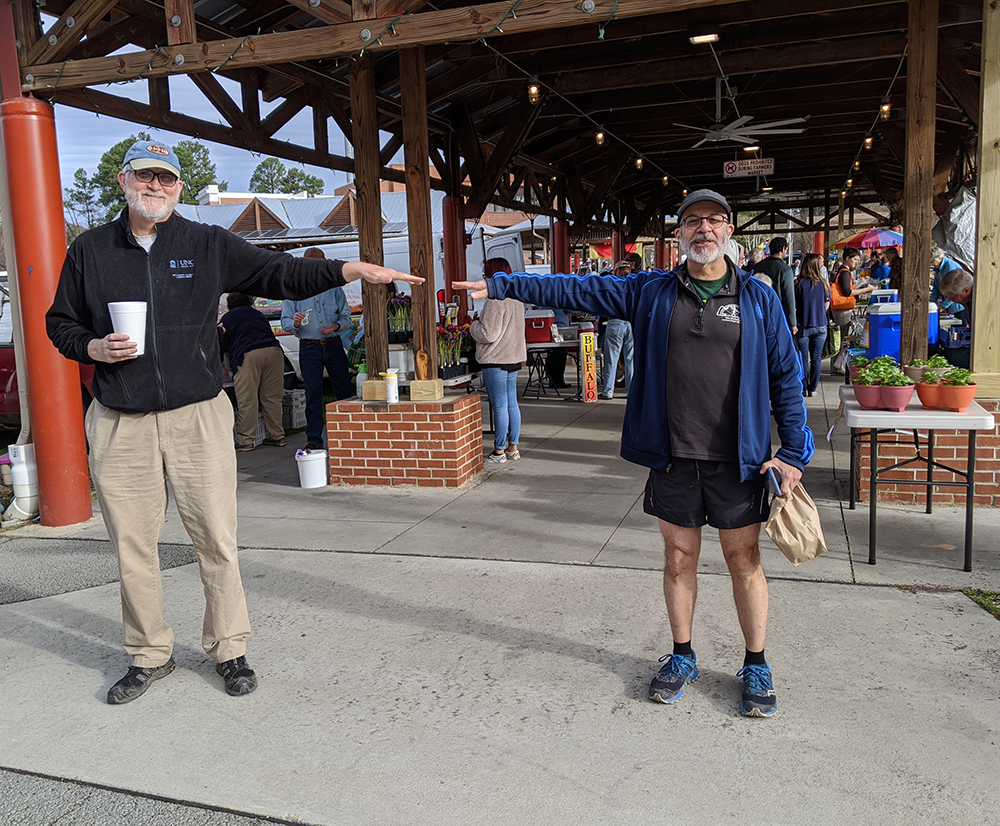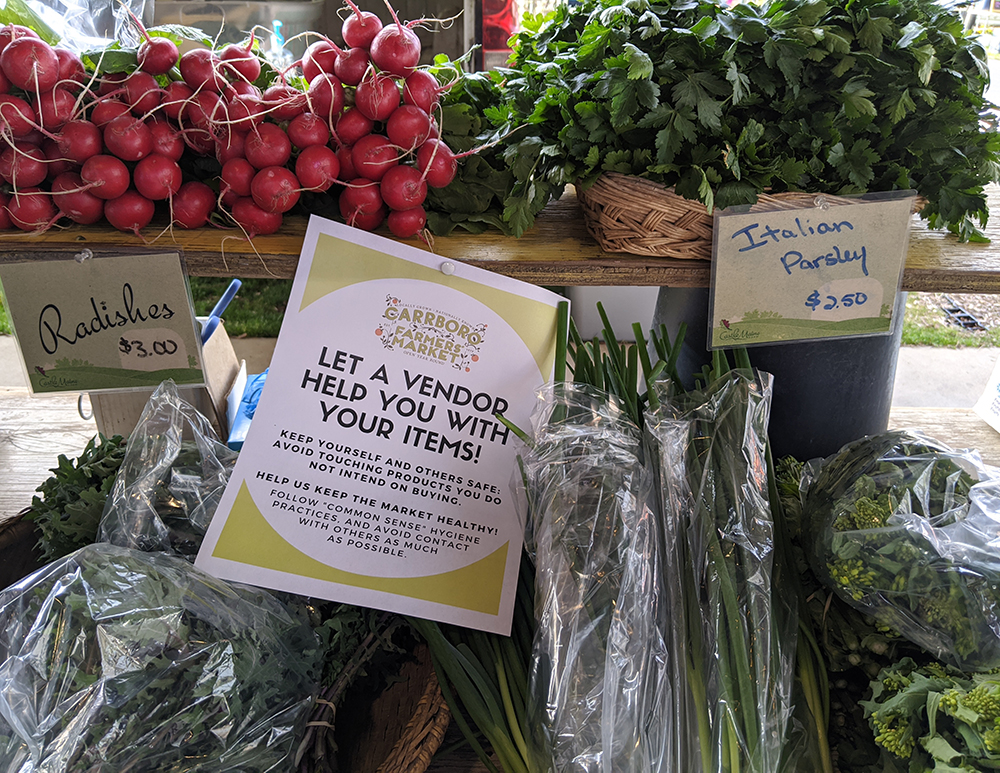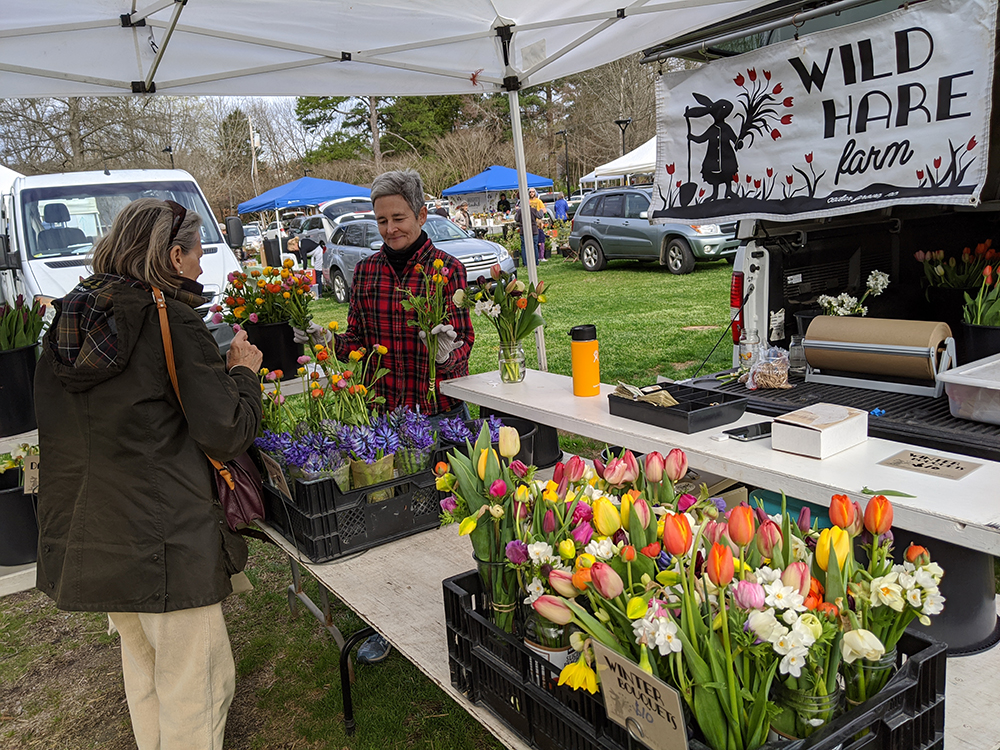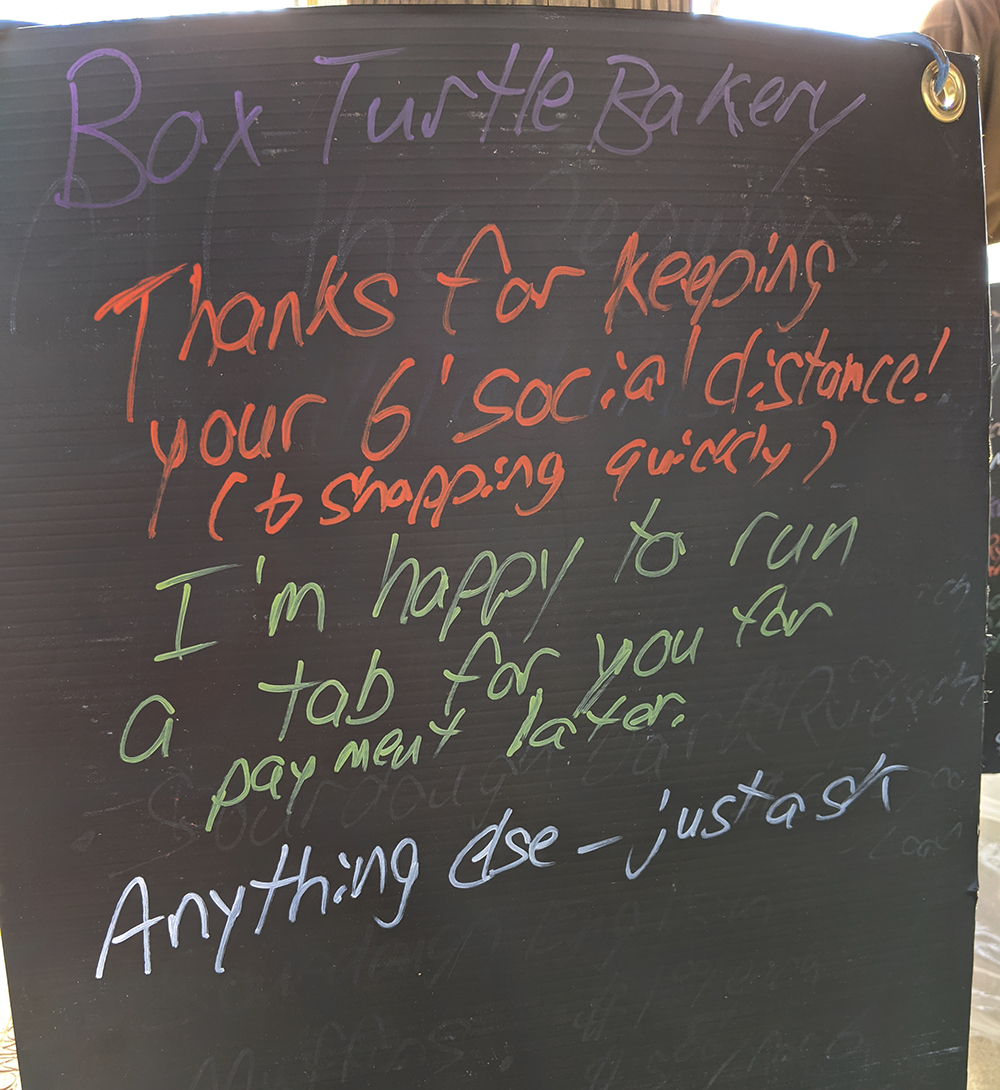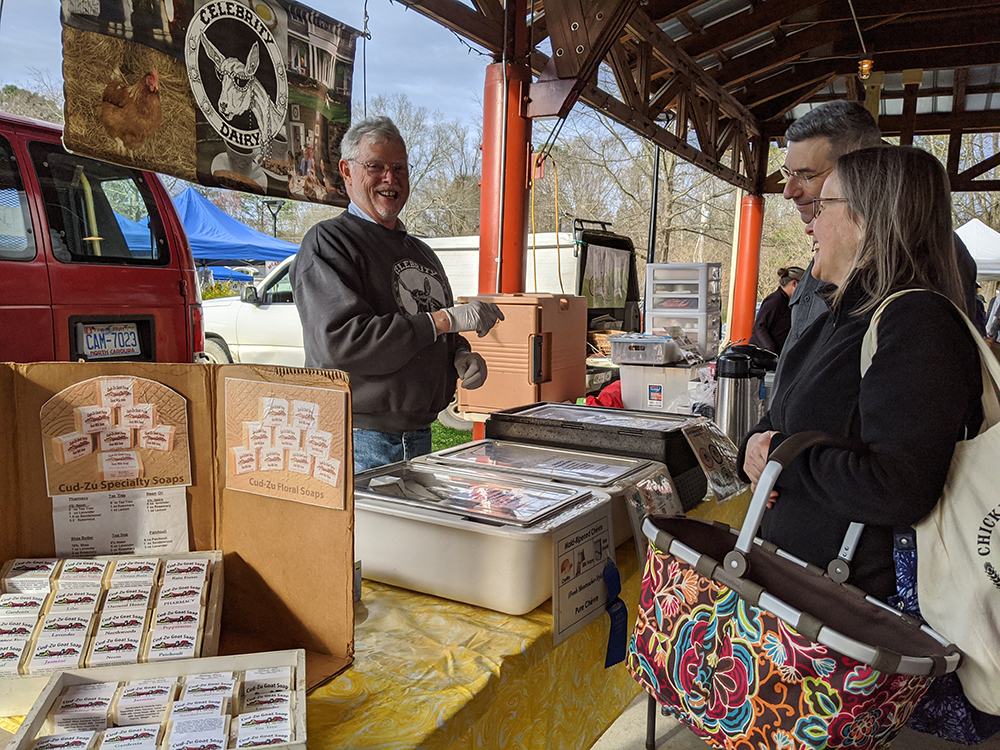Mar 20, 2020North Carolina State Extension agent shares farmers’ market tips
Last week was a blur amid all the news about coronavirus and its impacts on our communities, both locally and nationally. Every day brought new information and new policies. I spent the week canceling large farmer workshops (it’s not easy to cancel an event that was 100% planned and ready to go) and communicating with folks in the region. By the end of the week the governor had closed schools throughout the state for at least two weeks and prohibited mass gatherings and the president had declared a National Emergency. No one knows what lies ahead as this level of disruption is unprecedented and we are in uncharted territory.
I work with farmers and the local food system. My anxiety is high as I worry about how this disruption will affect farmers and local businesses like restaurants who purchase from farmers but are losing so much business over an extended period of time. Everyone has to eat, so how do we ensure access to local food and also keep everyone safe?
In North Carolina some farmers’ markets have been shut down by the towns or institutions that host them, but fortunately so far this seems to be only a small percentage of markets. I consider farmers’ markets to be essential to our food system and hope they stay open. All the markets I know of are working so hard to adapt to this fast changing environment and implement new guidelines and policies to keep vendors and customers safe and “flatten the curve” on coronavirus.
On Saturday I visited the Carrboro Farmers’ Market to shop, visit with vendors, and see what the market is doing differently to balance access to local food with health and safety. I was so impressed at what I saw (see the list of new practices below) and I have to say it was wonderful to be there after such a stressful week. The only negative part was not being able to hug all my farmer friends!
I talked with Carrboro Farmers’ Market supporter and Clinical Microbiologist Dr. Peter Gilligan while I was at the market. He is a retired Professor of Pathology and the former Director of the Microbiology Lab at UNC-Chapel Hill. According to Dr. Gilligan, “I actually think the farmers’ market is a safer place to shop – because it has sunlight and fresh air – but we have to have social distancing and that’s something people aren’t used to. So I’ve been going around and suggesting to people when they are waiting in line in particular that it’s important to maintain social distancing: if you put your arm out and you can touch someone then you are too close.”
Below is a list of strategies that the Carrboro Farmers’ Market has implemented to help “flatten the curve” and do their part to slow the spread of the coronavirus. I know that other local farmers’ markets have also adopted many of these same practices.
- The market sent an email to customers before the Saturday market informing them of the new guidelines and asking folks who were sick to stay home.
- The market invited Dr. Peter Gilligan, a Clinical Microbiologist, to meet with the vendors, offer guidance, and answer questions before the market opened on Saturday.
- Customers were encouraged to practice “social distancing” – maintaining a space of about six feet from each other – and were informed of this policy as they entered the market; signage and volunteers spread throughout the market reminded customers of the practice.
- The space between vendors was increased to reduce crowding.
- Upon the advice of Dr. Gilligan, vendors rounded their prices to the nearest dollar so they could stop accepting coins – he said that at least in the laboratory the virus has survived on coins.
- Customers were asked not to handle any items on the vendors’ tables but to just point at what they wanted and let vendors bag their purchases; vendors were provided signage by the market informing customers of this policy.
- The policy about not allowing purchases until opening bell was relaxed to prevent the long lines that form at vendors’ booths before the market opens; instead, the early arrivals were allowed to make purchases.
- Vendors did not offer samples of their products to reduce opportunities for contamination.
- Vendors were encouraged not to use tablecloths to make it easier to sanitize surfaces; some vendors laid a sheet of plastic over the top of their tablecloth which they could wipe down with sanitizer.
- Many vendors chose to wear disposable gloves, mainly as a reminder to not touch their face.
- Some vendors designated one person to handle money and another to handle product.
- The market had volunteers who would stop by the vendor booths to relieve them so they could leave and wash their hands.
- Hand sanitizer was ubiquitous throughout the market, at vendor tables and also in other locations.
- The market brought in a hand washing station that they normally use for events. Customers also have access to bathrooms in two locations at the market.
The Castlemaine Farm booth displays the sign the market provided explaining the policy about customers NOT touching product. Photo by Debbie Roos.
Farmer Leah Cook of Wild Hare Farm demonstrates what she calls the market’s new “purchasing in a pandemic” policy as she has customers point to what they want so that she can pull the order together. Nothing like a beautiful bouquet of flowers to brighten your day in these stressful times! Photo by Debbie Roos.
Box Turtle Bakery’s sign reminds folks to maintain social distance and not linger! He even was allowing folks to run a tab if they preferred not to handle money. Everyone is getting creative and thinking outside the box to keep safe. Photo by Debbie Roos.
Many vendors like Brit Pfann of Celebrity Dairy were wearing disposable gloves and sanitizing surfaces frequently. Brit had a sheet of plastic over his tablecloth to facilitate cleaning. Photo by Debbie Roos.
After I visited the Carrboro Farmers’ Market yesterday I then went to three different chain grocery stores. I have to say I was a bit surprised that the Carrboro Farmers’ Market was the ONLY one of these four retail establishments where I saw any proactive, protective measures being taken and communicated to customers. In all three grocery stores I visited it was business as usual with no new policies, or at least no new policies that were visible or communicated to the customers. I definitely felt better about shopping at the farmers’ market where I knew folks were doing their best to practice social distancing and good hygiene practices than I did at the grocery stores where customers seemed mainly concerned with stockpiling and grabbing stuff before it disappeared from the shelves again.
Who knows what lies ahead in the coming weeks. I do hope everyone takes coronavirus seriously and does their part to help flatten the curve, in ways that make sense to you and your loved ones. These are challenging times and we need to stay safe and support each other.
If you would like to share your ideas for what your farmers’ market is doing please email me.
Marketing Publications From North Carolina State University
Tips for Farmers Markets here.
Tips for U-Pick Farm here.


